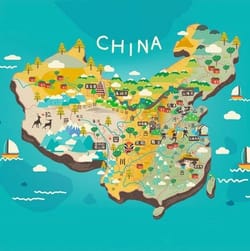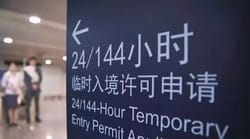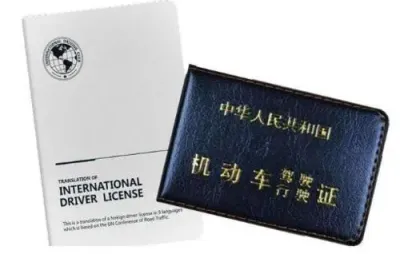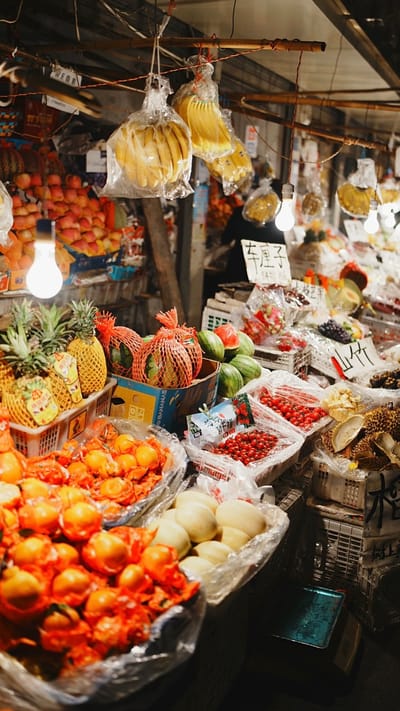On this page
China, the ancient country in the East – have you seen and heard so much about it on TV, in newspapers, and on TikTok, yet never experienced it in person? Even when you start planning your trip to China, you might find that information online is so limited. How to check whether I need a visa? How to book tickets and hotel? How to use instagram and facebook in China? How to find a nice local restaurant? So many questions!!
But don't let those become an obstacle to your journey to China. The following 10 things can help you travel to China more smoothly and conveniently:
VISA Requirements

Do You Need a Visa?
Whether you need a visa depends on the type of passport you hold and China’s visa policies:
- About Chinese Visa
What is the main purpose of your visit to China and which is the most appropriate visa category for your application? Click this link👇
http://cs.mfa.gov.cn/wgrlh/lhqz/lhqzjjs/201311/t20131101_961583.shtml
- Countries with Mutual Visa Exemption Agreements with China (Note: Not all passport types are exempt)
Below are the lists of countries with mutual visa exemption agreements, available in both Chinese and English PDF files. This information is sourced from the "List of Mutual Visa Exemption Agreements between China and Foreign Countries." To ensure the accuracy and reliability of this information, please consult the Ministry of Foreign Affairs of your passport-issuing country for confirmation.)
- List of Countries Offering Visa-Free Entry to China (Total 15 Countries) (Updated as of June 25, 2024)
China allows ordinary passport holders from the following countries to enter visa-free for tourism, business, and other activities for a specified period without needing to apply for a visa in advance:
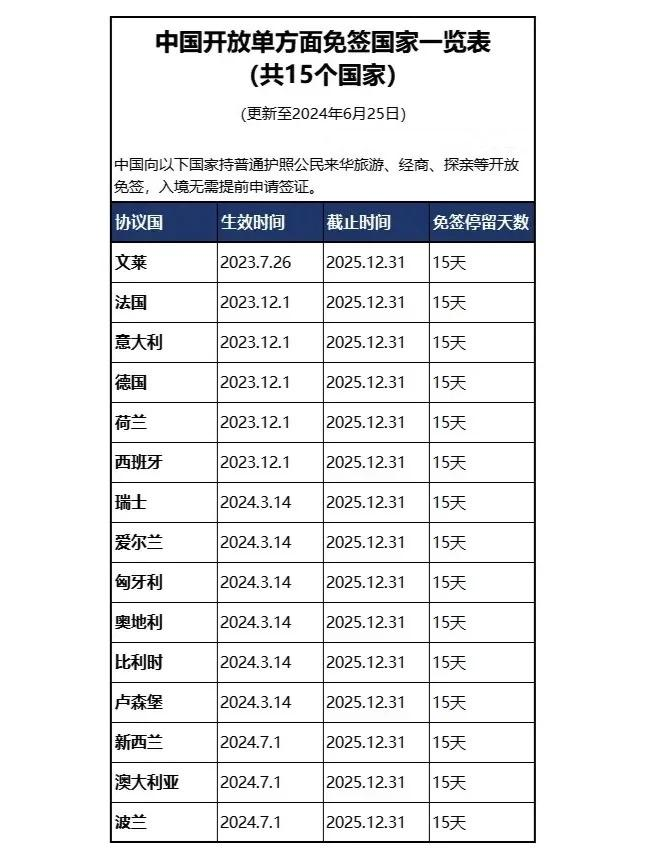
| Country | Start Date | End Date | Visa-Free Stay Duration |
| Brunei | 2023.7.26 | 2025.12.31 | 15 days |
| France | 2023.12.1 | 2025.12.31 | 15 days |
| Italy | 2023.12.1 | 2025.12.31 | 15 days |
| Germany | 2023.12.1 | 2025.12.31 | 15 days |
| Netherlands | 2023.12.1 | 2025.12.31 | 15 days |
| Spain | 2023.12.1 | 2025.12.31 | 15 days |
| Switzerland | 2024.3.14 | 2025.12.31 | 15 days |
| Ireland | 2024.3.14 | 2025.12.31 | 15 days |
| Greece | 2024.3.14 | 2025.12.31 | 15 days |
| Austria | 2024.3.14 | 2025.12.31 | 15 days |
| Belgium | 2024.3.14 | 2025.12.31 | 15 days |
| Luxembourg | 2024.3.14 | 2025.12.31 | 15 days |
| New Zealand | 2024.7.1 | 2025.12.31 | 15 days |
| Australia | 2024.7.1 | 2025.12.31 | 15 days |
| Poland | 2024.7.1 | 2025.12.31 | 15 days |
(This table is the English version of the previous picture.)
- Countries Eligible for Transit Visa Exemptions (54 countries as of July 2024)
https://www.gov.cn/zhengce/jiedu/tujie/202407/content_6963327.htm
P.S. This article is bilingual in Chinese and English. Please be patient and turn to page 7 to read the English version.
- If You Need a Visa
Select your country and city to apply for the appropriate visa.
https://www.visaforchina.cn/globle/
Understanding the Visa-Free Transit Policy
- What is Visa-Free Transit Policy?
When entering China, you must present a ticket for onward travel within the visa-free period (plane, ship, or train). The destination cannot be the same as your point of origin. In addition, Hong Kong, Macau, and Taiwan are considered valid onward destinations.
Examples:
- for UK Citizens:
If you are a UK citizen wanting to use the 144-hour Visa-Free Transit Policy to visit Shanghai, you must show a ticket to a third country within 144 hours upon entry, such as a flight to Tokyo, Taiwan, or Hong Kong. Showing a return ticket to the UK is invalid for this policy.
- for US Citizens:
If you are an American citizen using the 144-hour Visa-Free Transit Policy to visit Shenzhen, you can show a train or ship ticket to Hong Kong within 144 hours upon entry. Showing a return ticket to the US is invalid for this policy.
- Duration:
The visa-free period starts at 00:00 on the day following your entry date.
- Visa-Free Cities and Corresponding Ports and Activity Limits (as of July 2024):
Here is a detailed list of cities, their corresponding ports of entry, and the specific areas where activities are permitted under the Visa-Free Transit Policy.
72-Hour Visa-Free Transit Policy:
Province/Region | Applicable City | Applicable Port | Permitted Stay Area |
Hunan Province | Changsha, Hunan | Changsha Huanghua International Airport | Hunan province |
Heilongjiang Province | Haerbin, Heilongjiang | Harbin Taiping International Airport | Haerbin (city) |
Guangxi Zhuang Autonomous Region | Guilin, Guangxi | Guilin Liangjiang International Airport | Guilin (city) |
Beihai, Guangxi | Beihai Port (for passenger transport) | Beihai (city) |
144-Hour Visa-Free Transit Policy:
Province/Region | Applicable City | Applicable Port | Stay Range | Remarks |
Beijing-Tianjin- Hebei Region | Beijing | Beijing Capital International Airport | Beijing, Tianjin, Hebei Provinces (Cities) | Joint implementation of 144- hour visa-free transit policy. Foreigners meeting the applicable conditions can enter through any applicable port in the region and stay for up to 144 hours, exiting through any applicable port in the region. |
Beijing Daxing International Airport | ||||
Beijing West Railway Station | ||||
Tianjin | Tianjin Binhai International Airport | |||
Tianjin International Cruise Home Port | ||||
Shijiazhuang, Hebei | Shijiazhuang Zhengding International Airport | |||
Qinhuangdao, Hebei | Qinhuangdao Sea Port (Passenger) | |||
Jiangsu-Zhejiang- Shanghai Region | Shanghai | Shanghai Hongqiao International Airport | Shanghai, Jiangsu, Zhejiang Provinces (Cities) | Joint implementation of 144- hour visa-free transit policy. Foreigners meeting the applicable conditions can enter through any applicable port in the region and stay for up to 144 hours, exiting through any applicable port in the region. |
Shanghai Pudong International Airport | ||||
Shanghai Sea Port (Passenger) | ||||
Shanghai Railway Port | ||||
Nanjing, Jiangsu | Nanjing Lukou International Airport | |||
Lianyungang, Jiangsu | Lianyungang Sea Port (Passenger) | |||
Hangzhou, Zhejiang | Hangzhou Xiaoshan International Airport | |||
Ningbo Lishe International Airport | ||||
Wenzhou, Zhejiang | Wenzhou Sea Port (Passenger) | |||
Zhoushan, Zhejiang | Zhoushan Sea Port (Passenger) | |||
Guangdong Province | Guangzhou, Guangdong | Guangzhou Baiyun International Airport | Guangdong Province | Foreigners meeting the applicable conditions can enter through Guangzhou, Shenzhen, Jieyang airports or Nansha, Shekou ports, stay in Guangdong for up to 144 hours, exiting through any of the 36 open ports with passenger functions in Guangdong Province. |
Nansha Sea Port (Passenger) | ||||
Shenzhen, Guangdong | Shenzhen Baoan International Airport | |||
Shekou Sea Port (Passenger) | ||||
Jieyang, Guangdong | Jieyang Chaoshan International Airport | |||
Liaoning Province | Shenyang, Liaoning | Shenyang Taoxian International Airport | Liaoning Province | Foreigners meeting the applicable conditions can enter through Shenyang, Dalian airports or Dalian port, stay in Liaoning for up to 144 hours, exiting through any applicable port. |
Dalian, Liaoning | Dalian Zhoushuizi International Airport | |||
Dalian Sea Port (Passenger) | ||||
Shandong Province | Qingdao, Shandong | Qingdao Jiaodong International Airport | Shandong Province | |
Qingdao Sea Port (Passenger) | ||||
Chongqing | Chongqing | Chongqing Jiangbei International Airport | Chongqing City | |
Sichuan Province | Chengdu, Sichuan | Chengdu Shuangliu International Airport | Chengdu, Leshan, Deyang, Suining, Meishan, Ya'an, Ziyang, Neijiang, Zigong, Luzhou, Yibin Cities | |
Shaanxi Province | Xi'an, Shaanxi | Xi'an Xianyang International Airport | Xi'an City, Xianyang City | |
Fujian Province | Xiamen, Fujian | Xiamen Gaoqi International Airport | Xiamen City | |
Xiamen Sea Port (Passenger) | ||||
Hubei Province | Wuhan, Hubei | Wuhan Tianhe International Airport | Wuhan City | |
Yunnan Province | Kunming, Yunnan | Kunming Changshui International Airport | Kunming City |
You can get more details about visa policy in our Passport and Visa Guidelines.
Internet Use
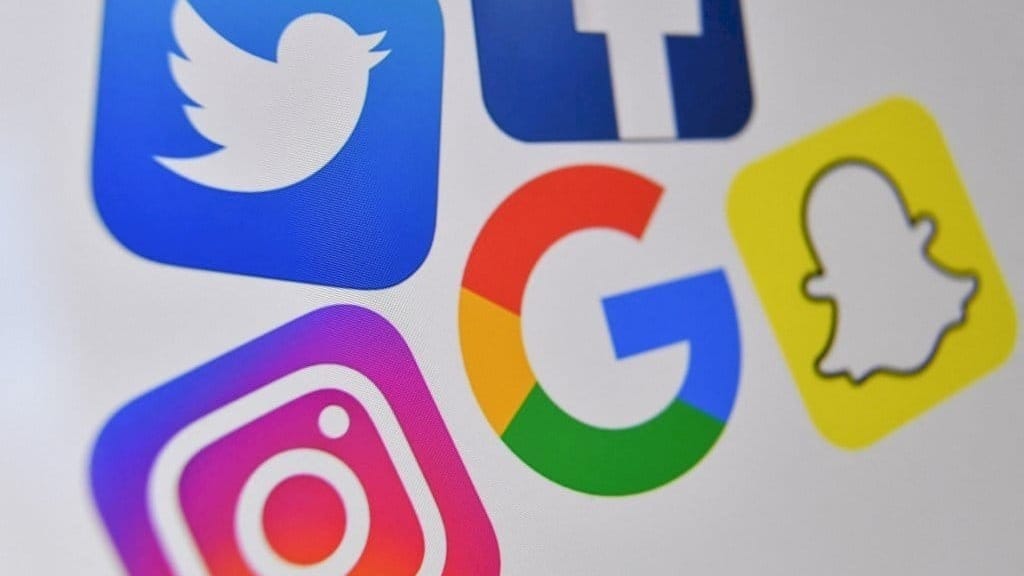
Internet use in China is important considerations for foreign travelers.
Content Censorship
The Chinese internet is subject to content censorship, and internet companies must have their servers located in China and comply with government regulations. As a result, some companies do not offer services to ordinary users in China. However, they retain services for B2B clients, which means the following apps are not available to regular users:
- All Google apps, including Maps, Search, Gmail, etc.
- All Meta services, including Facebook, Instagram, WhatsApp, etc.
Microsoft and Apple comply with local laws, so their services, including Apple's built-in Maps app, are available.
Note: Although TikTok is a product of the Chinese company ByteDance, its servers and data are not located in China, so it cannot be used properly within China.
Real-Name System and Digitalization
China has a real-name registration system for internet services and is highly digitalized. It is also one of the best countries for 5G network coverage. Without a Chinese SIM card, you may not be able to access many convenient online services, such as hotel booking, ride-hailing, food delivery, and train ticket booking. Therefore, we recommend getting a Chinese SIM card and using a VPN service to bypass internet restrictions, allowing you to access Google, Facebook, and other international services.
How to Use the Internet in China:
Here is a summary table in English for internet options during your stay in China:
Option | Use Foreign Services | Use Chinese Apps | Network Speed | Cost | Recommendation |
Global Roaming | Yes | No | Unstable | Very Expensive | Not recommended due to high cost and signal instability. It depends on your carrier's agreement with Chinese carriers.🤓 |
eSIM Card | Yes | No | Average | Expensive | Generally recommended for short stays (up to 48 hours) to avoid changing SIM cards.✌️ |
Rent WiFi Router | No | No | Unstable | Cheap | Not recommended due to the inconvenience of borrowing and returning.😢 |
Get a Chinese SIM Card | Yes (with VPN) | Yes | Fast | Cheap | Highly recommended.👍 VPN is needed for accessing foreign services; choose a stable provider. |
For more details, refer to our Internet Issues Guide.
Payment
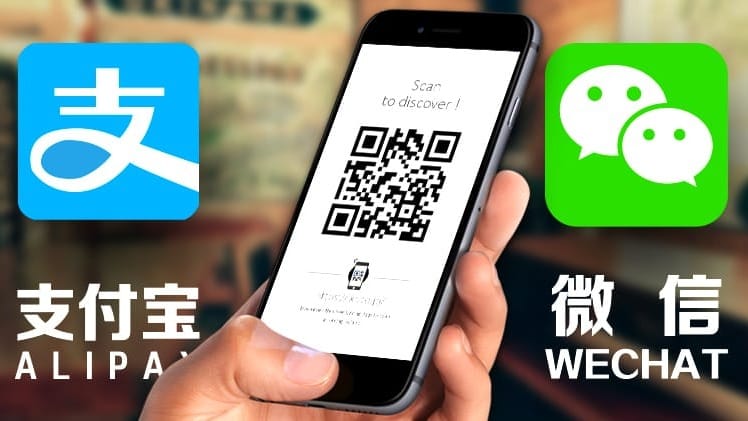
With the promotion of electronic payments and the widespread use of smartphones, China has gradually entered a cashless society. Chinese people rarely use cash for transactions domestically. Although the law requires that cash cannot be refused, using cash in China can create inconvenience for both parties involved in the transaction. Here are 3 things you should know about payments in China. For more details, please refer to our payment guide.
Alipay and WeChat Pay
These two methods dominate 99% of the payment market.
- The English version of Alipay is more user-friendly. For more details about using Alipay, please refer to our payment guide.
- WeChat Pay holds a larger market share, and almost all social services and communications in China can be handled through WeChat. It’s recommended to register for a WeChat account to make it easier for your hotel or driver to contact you.
- Both payment methods will be feasible after adding a bank card to your account.
Jargons of payment in China: "ni sao wo" (你扫我) and "wo sao ni" (我扫你)

- "ni sao wo" (你扫我)
- It means "you scan me".
- When you hear the cashier say this, you should open the scanning feature in your payment app and scan the payment code provided by the merchant.
- "wo sao ni" (我扫你)
- It means "I scan you".
- When you hear the cashier say this, you need to show him/her your payment code in the payment app to let the cashier scan yours, which the above picture shows.
Special Situation

Some small vendors use personal accounts for payments, which is technically illegal due to potential tax evasion. However, many small vendors still use this method. When dealing with such vendors, credit cards like VISA will fail to pay. It’s advisable to use a debit card or seek assistance from a local person to handle the payment.
Language Barrier

Although now every Chinese student starts learning English from primary school, speaking is still the most challenging skill for them. Most young people's spoken English is not very good, let alone that of older people. Therefore, apart from international windows like major hotels, airports, and border crossings, speaking English to taxi driver, small restaurant waiter, or 7-11 cashier might not be a wise choice. It’s best to download a translation app.Here are two recommended translation apps available in mainland China:
Translate (for iOS)
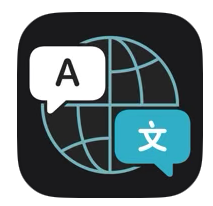
(If you're an iOS user, you don't need to download another translation app. The built-in "Translate" app on Apple devices will do the job. )
Baidu Translate

(It is equipped with an English version and its interface is very clear. Also, I think its Chinese translation is more natural.)
Google translate
Google translate is also a good choice but Google discontinued its Google Translate services in mainland China. If you insist on Google Translate, you'd better prepare the VPN.
Well, learning a few common Chinese expressions can help you with basic communication.
Chinese | Chinese pinyin | English phonetic representations | Meaning |
你好 | nǐ hǎo | nee how | Hello |
谢谢 | xièxiè | shyeh shyeh | Thank you |
对不起 | duì bù qǐ | dway boo chee | Sorry |
多少钱 | duō shao qián | dwo shao chyen | How much is it? |
Besides, if you're lucky, you might encounter some outgoing young people and can communicate with them in English.🌹🤣🤣 (We simply call those guys "E ren" or "social terrorist" in Chinese. E stands for "extroverted", “ren” for "person". As for "social terrorist", it means talkative and extrovert social butterfly who feels like he/she has known you forever upon first meeting.)
Apps
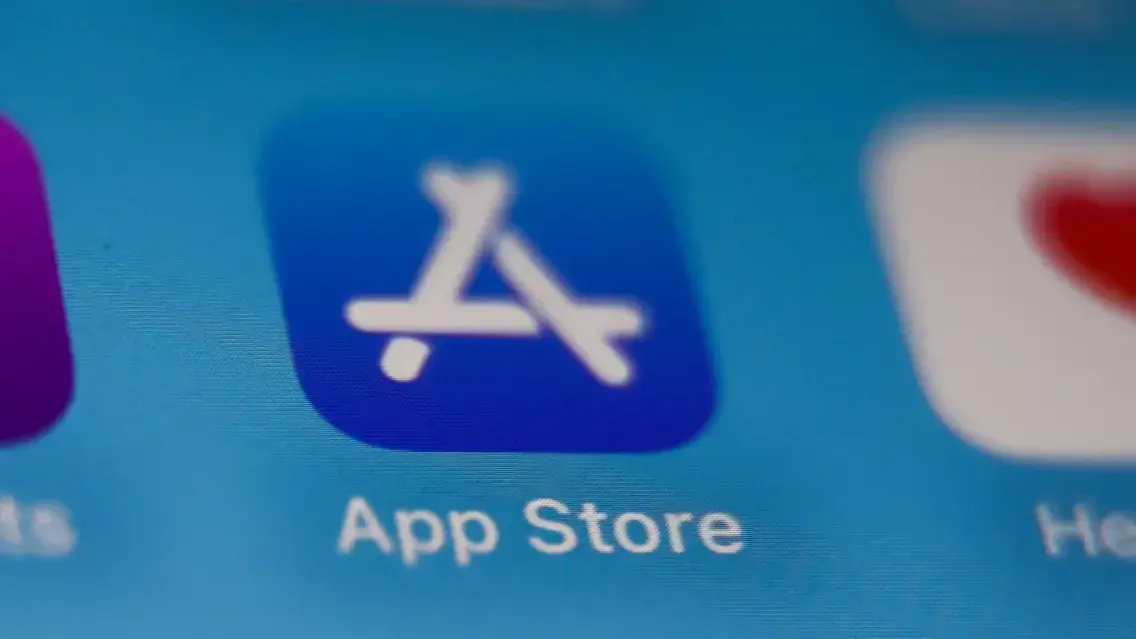
Navigation
For navigation within China, it is recommended to use Baidu Maps, Apple Maps, and Gaode Maps.



Apple Maps, Gaode Maps, Baidu Maps (from left to right)
Baidu Maps provides detailed local information and precise navigation services, excelling in city traffic and public transportation.
Apple Maps offers a clean and user-friendly interface, seamlessly integrated with iOS devices for a smooth experience.
Gaode Maps is renowned for its real-time traffic updates and accurate route planning, making it ideal for driving.
Among the three maps, only Apple Maps offers an English version. Baidu and Gaode have Chinese version solely. Given that Baidu Maps and Gaode Maps as China's local app are able to provide more accurate information about traffic, we can first translate the destination and then navigate through the app.
Ride-hailing

For ride-hailing in China, it is recommended to use Didi Chuxing.
Didi is a widely used ride-hailing app in China, similar to Uber.
- We can choose from various types of vehicles, including Express, Premier, and Luxury, to meet different travel needs.
- The DiDi app does not have an English version, but we can use the English version through its mini-program in Alipay or WeChat.
- When communicating with the drivers, note that he/she probably cannot speak English. Please select a prominent pick-up location in the app, such as the hotel lobby, instead of speaking English to the one who only understands Chinese via phone.
- The app supports multiple payment methods, including Alipay and WeChat Pay, ensuring a smooth and hassle-free ride.
- Didi's user rating system and real-time location tracking help you reach your destination quickly and safely.
Accommodation booking
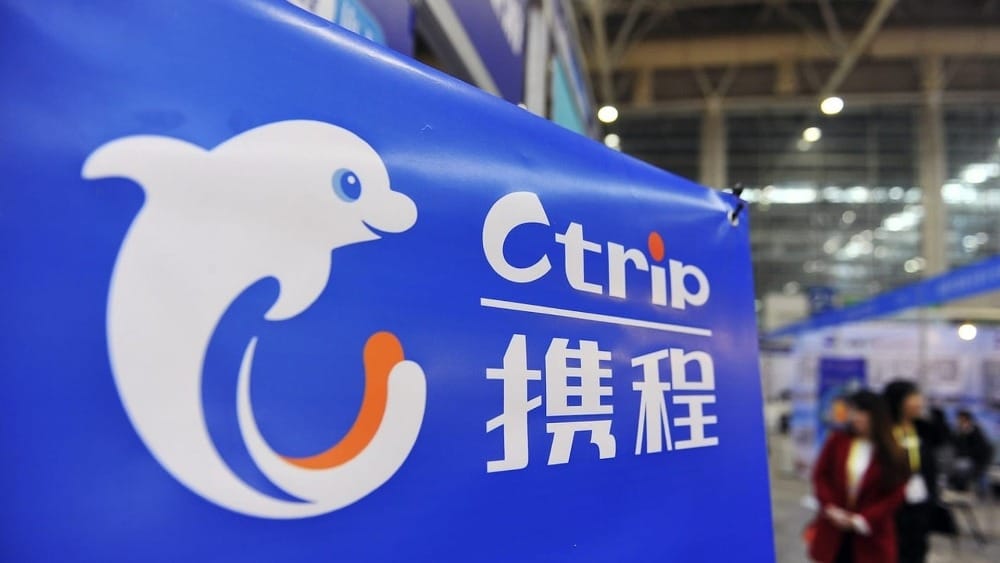
Trip.com or Ctrip is an internationally renowned online travel agency, offering a wide range of hotel options at competitive prices. Its user review system allows you to see real feedback and ratings from other travelers, helping you make informed choices. You can book hotels through their mobile app or website.
Train tickets

For intercity and interprovincial travel, the recommended ticket booking app is Railway12306. This app allows you to search for all available train services and ticket prices for the day. As an official app, it does not charge any intermediary fees. You can find more information about this in the Transportation chapter.
Food delivery
The most commonly used food delivery apps in mainland China are Meituan and Ele.me.
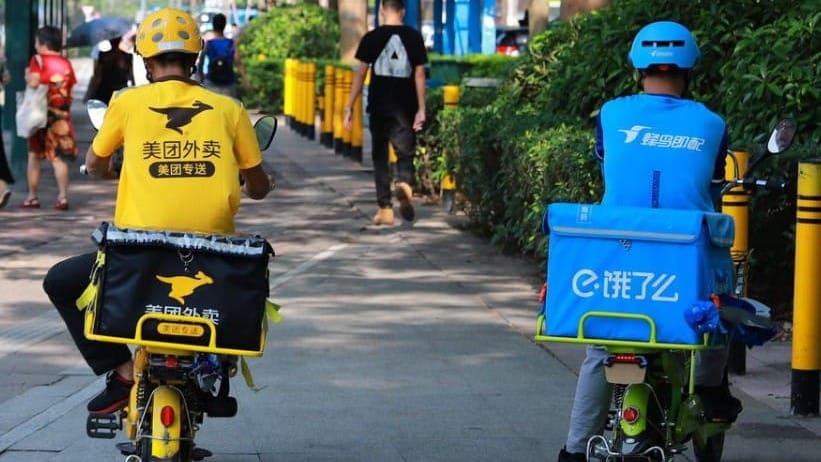
Both platforms require a Chinese mobile number for login. They offer a wide range of delivery options, from food to daily necessities. You can browse different merchants on the interface, view detailed menus on the merchant's page, select the items you want to buy, enter your address, and wait for delivery.
However, neither app currently offers an English version.
Find a nice restaurant

A restaurant's quality is best judged by its customers, not by the restaurant itself. Dianping is a platform that provides customer reviews. You can find restaurant ratings, recommended dishes from other diners, and user-posted food guides. However, this app also does not have an English version.
Considering some of the aforementioned apps do not offer an English version😥, we are going to make instructions to help foreign tourist to use them🤝. To get more tips on using these apps, please subscribe to us.😉
Transportations
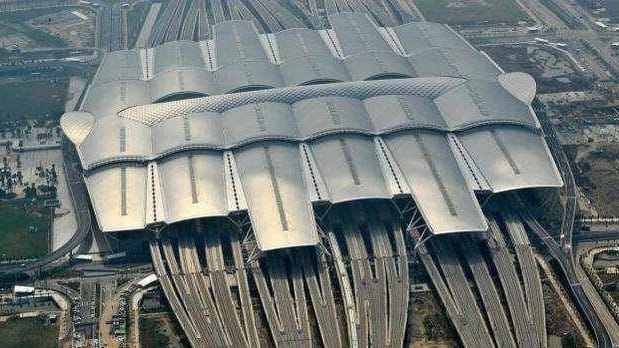
Public transportation
China's public transportation system includes subways, buses, and long-distance buses. Major cities like Beijing, Shanghai, and Guangzhou have well-developed subway networks, offering convenient and fast travel. Buses are widely available and suitable for short trips. Long-distance buses connect cities and rural areas, meeting the needs of long journeys. The public transportation system is typically very busy during holidays and peak times.
For us tourists, the most commonly used options are buses and subways.
Most of the bus systems and subway systems around the country have been equipped with e-pay devices. All you need to do is scan your QR code in Alipay or WeChat when boarding or passing through the turnstile. In China, the subway system allows for transfers within the same station at interchange points.
Additionally, some cities, such as Chongqing, offer a free transfer policy within a half-hour. This means that if you exit the subway station and board a bus within 30 minutes, the bus ride is free.
Railway transportation
China's railway transportation system is one of the most developed and extensive in the world, with over 140,000 kilometers of rail lines, including approximately 38,000 kilometers of high-speed rail (HSR) lines. The railway network connects major cities and tourist attractions across the country and is especially crucial during holidays, as it effectively manages the massive flow of people, ensuring safe travel. In the Chinese railway system, trains starting with different letters represent different train series. Here is a brief introduction to each:
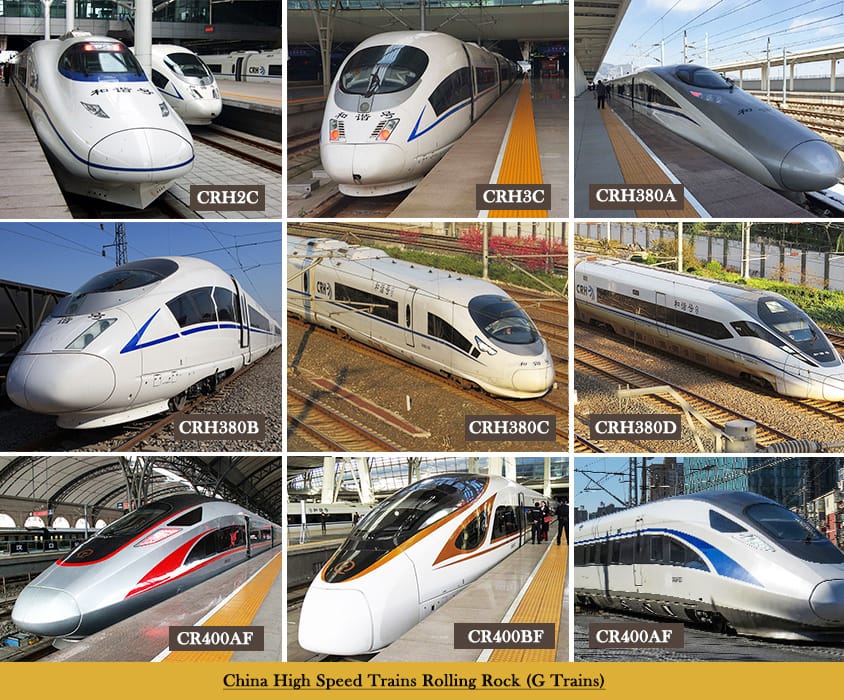
- G-series trains
G stands for "Gao Su" (high speed), which refers to China's high-speed trains. These trains operate on high-speed rail lines and can reach speeds of up to 350 kilometers per hour. They are the fastest trains in China, offering a comfortable travel experience for long-distance trips. - D-series trains
D stands for "Dong Che", which refers to China's bullet trains. These trains run on high-speed rail lines and some conventional rail lines, with speeds reaching up to 250-300 kilometers per hour. The D-series trains provide faster and more comfortable service compared to regular trains. - K-series trains
K stands for "Kuai Su", which refers to China's fast-speed trains. They operate on longer routes and have speed and service levels between regular trains and bullet trains. While not as fast as high-speed or bullet trains, K-series trains offer relatively fast service. K-series trains' carriages are green, which is why they are also called "green-skinned trains". - C-series trains
C stands for "Cheng Ji" (intercity), which is used for short-distance travel between cities. These trains run on intercity rail lines around cities and are generally faster than regular trains but slower than high-speed trains. They are suitable for quick commutes between cities. - L-series trains
L stands for "Lin Shi" (temporary), which refers to trains that are temporarily added to meet special demands. For example, during peak travel periods like holidays, additional L-series trains may be introduced to accommodate increased passenger volume.
Currently, all railway tickets can be purchased directly online through the official China Railway app, Railway12306. After successfully purchasing a ticket, you can enter and exit stations by scanning your ID card or the QR code in the ticketing app. For detailed instructions on the purchasing process, please refer to our 12306 app user guide.
Self-driving
For tourists who want to go on a self-driving tour, you first need to obtain a temporary driving permit. In some cities, airports and ports have offices where foreigners can apply for a temporary license. For example, in Chengdu, the following materials should be submitted along with the relevant personal information when applying for the provisional driving permits:
- Identity document for exit-entry the People’s Republic of China.
- If the existing overseas driving license is not stated in Chinese, then a Chinese version is required.
- Two recently-taken one-inch, half-length, bareheaded and full-faced color photos with white background.
Additionally, different cities have varying requirements for foreigners renting cars. For detailed information, you can subscribe to our service. travelchinafreely will help you resolve all your concerns.
Accommodation

- In China, the best website for booking accommodation is undoubtedly Trip.com.
Trip.com, also known as Ctrip in China, is an international online travel agency and the largest travel website in China. The parent company also owns Skyscanner. You can use Trip.com to book hotels, train tickets, and flights worldwide. It is also popular among locals for booking hotels and tickets. Compared to Booking.com and Agoda, Trip.com offers a wider selection of hotels and better prices. With more users booking through Trip.com in China, the reviews are also more accurate. You will also see translated Chinese reviews and on-site photos of the hotels.
- Hostels also offer a fantastic opportunity to meet fellow travelers and forge new friendships. However, in China, you might encounter challenges with the language barrier. Typically, hostels maintain a WeChat group where they share information about trips and social gatherings. Although this information is usually in Chinese, the WeChat translation feature is generally quite reliable.
- Homestay is also a great option. However, as of July 30, 2022, the global short-term rental giant Airbnb suspended support for vacation rentals, experiences, and related bookings within China. If you want to experience local homestay in China, you can choose to book through domestic short-term rental platforms. Trip.com is also a viable option. However, like with hostels, you might encounter language barriers as well.
Consumption
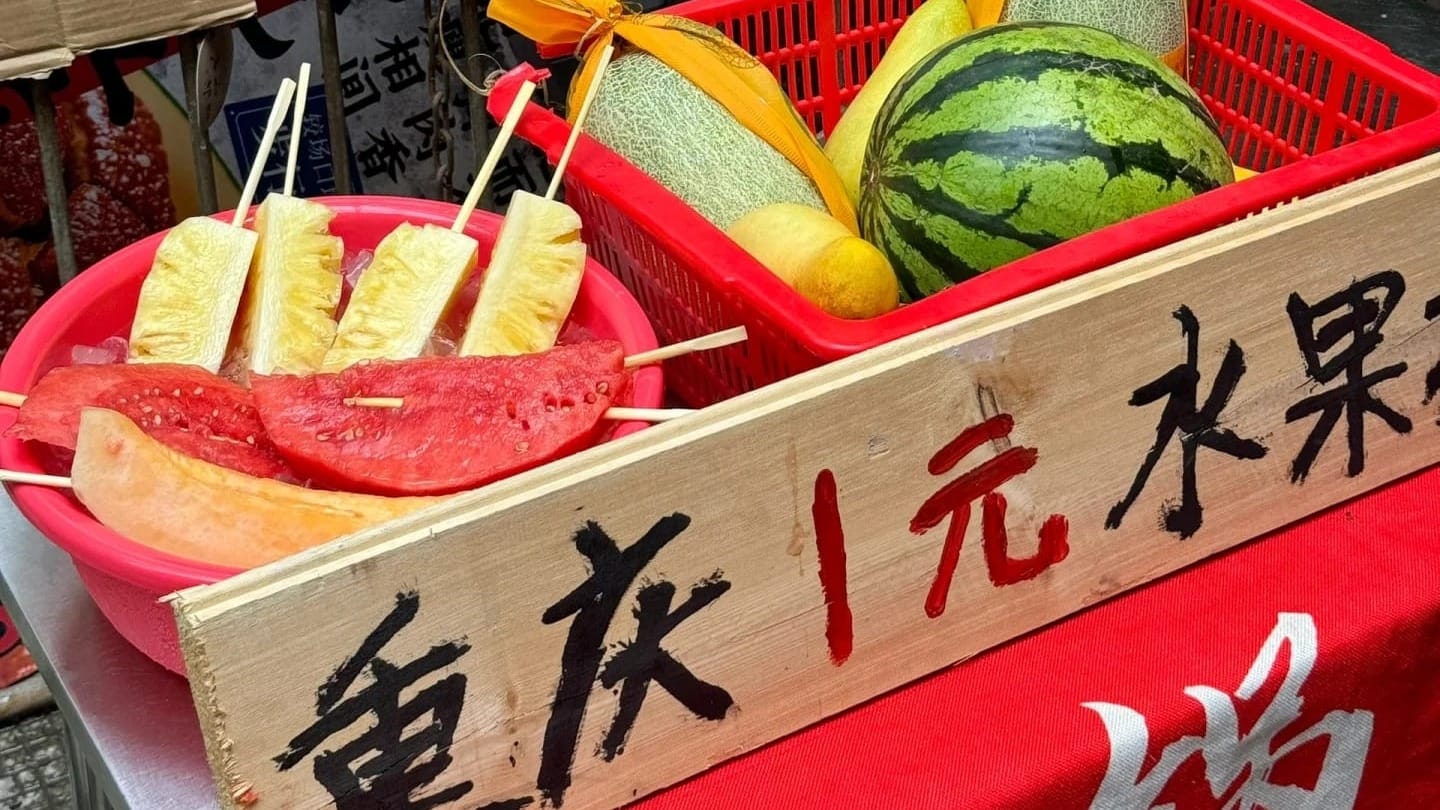
More details about practical tips of booking can be found in "How to book accommodations in China" guide.
China's cost of living is low.
China offers some of the best value for travel globally, which brings you better shopping experience than that in Japan even during recent yen depreciation. For example:
- A bottle of Coca-Cola costs 3 RMB.
- A McDonald's lunch is 20 RMB.
- A local Chongqing noodle meal is just 7 RMB.
- A well-made latte for 9.9 RMB.
- A stay at a Hilton five-star hotel costs around 500 RMB.
- A high-speed train ticket from Beijing to Shanghai is 550 RMB, covering a distance three times greater than Tokyo to Osaka, yet at half the price.
Currently, 1 RMB is equivalent to approximately 0.14 USD.
The cost for a high-speed train ticket from Beijing to Shanghai, covering a distance of approximately 1,200 kilometers, is only around 75.57 USD.
No tipping culture
In China, tipping is generally not part of the culture. Unlike in some other countries, where tipping is expected in restaurants, hotels, and for various services, in China, the price you pay is usually inclusive of service charges. In most situations, it is not customary to leave a tip, and doing so might even be met with confusion or reluctance. Instead, excellent service is often considered a standard part of the job.
There are many discounts and promotions in restaurants.
Chinese cuisine is diverse and varied, making dining out an essential part of traveling. When we go to a restaurant, we can first check review apps. In China, the most commonly used app is Dianping (大众点评).
This app is similar to Yelp and TripAdvisor, featuring reviews and ratings for various establishments. We can view ratings, menus, and recommended dishes for different restaurants.
Additionally, businesses often offer discount packages on Dianping, allowing us to enjoy meals at more affordable prices.✌️
China is so vast, comparable in size to Europe, and each region has its own unique cuisine. We will continuously update our recommendations and introductions to local foods.
Health & Hygiene

Drinking water
In China, we generally do not drink tap water directly. People usually choose to use filters or buy bottled water. Most homes and offices have water dispensers that provide purified or mineral water. We mostly drink boiled water. Therefore, a kettle is a common appliance in every household. Hotels usually provide guests with free bottled water, and some high-end hotels offer filtered water. When traveling, it is advisable to carry bottled water, especially in remote areas. Public drinking water facilities are rare, so it is important to prepare your own drinking water when going out.
Toilet
In large malls and shopping centers in China, we can usually find Western-style toilets, and these restrooms often provide toilet paper. However, most Chinese people prefer squat toilets, believing squat toilets are more ergonomic and healthier. In most restaurants and in some less developed areas, it is more likely to find only squat toilets, so we'd better carry our own toilet paper.
Culture & Taboo

Chinese people are very friendly and hospitable. Confucius advocates benevolence. Old Chinese saying goes like that "Is it not delightful to have friends coming from distant quarters?" My dear friends coming from afar, there are some things it's best for you to know in advance, so that your trip to China can be more enjoyable.
Festivals and Holidays in China
China has an abundant festival culture. Major holidays include the following:

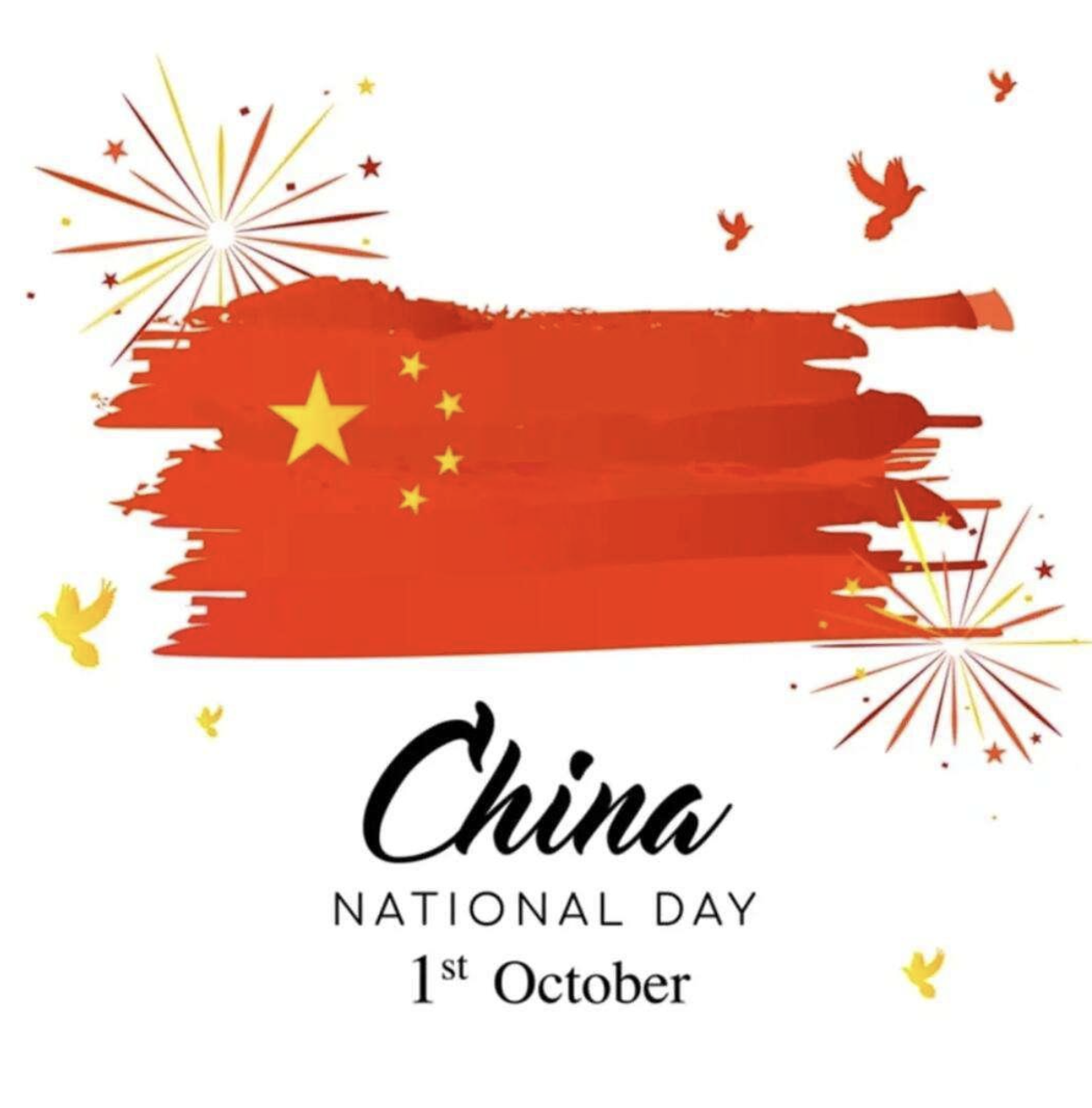



- New Year's Day: January 1st, with a 3-day holiday. Chinese people, along with people around the world, celebrate the New Year.
- Chinese Spring Festival: Celebrated on the first day of the lunar calendar. Specific dates vary, so check the Chinese lunar calendar or Google in advance.
- Tomb-sweeping Festival: A 3-day holiday in April. Dates are based on the Chinese lunar calendar. It is observed by Chinese and East Asian communities, such as Koreans. This is a time for honoring ancestors and enjoying the outdoors.
- Labor Day: A 5-day holiday from May 1st to 5th each year. It is the longest holiday in the first half of the year.
- Dragon Boat Festival: A 3-day holiday in June, observed by Chinese, Japanese, and Koreans. This festival involves dragon boat races and eating zongzi (rice dumplings). Dates are also based on the lunar calendar.
- Mid-Autumn Festival: A 3-day holiday in mid-September, based on the Chinese lunar calendar. This festival signifies family reunions, eating mooncakes, and admiring the full moon.
- National Day: A 7-day holiday from October 1st to 7th each year, celebrating the founding of the People's Republic of China.
After working for a long time, Chinese people will travel to other cities to have a rest during holidays. Thus, at that time, there will be mountains of people in some hot tourist destinations. Also, prices, particularly for hotel accommodations, will rise significantly.
Do not inquire about or discuss issues related to national sovereignty.
Please avoid discussing issues related to national sovereignty, such as the Taiwan issue. This is a very sensitive political topic. For more details, you can google the history of the Taiwan issue and the Chinese Civil War.
Sexual service is forbidden.
The sex industry is illegal in China. Some cities may have businesses operating in gray areas offering services similar to Japan's "fuzoku", but it is not advisable for foreigners to visit them, as it could potentially violate public security laws.
LGBTQ

The number of LGBTQ individuals is steadily increasing. However, LGBTQ is not considered mainstream in mainland China and same-sex marriage has not yet been legalized in mainland China. People's accceptance towards it varies across different cities, with first-tier cities like Chengdu, Chongqing, and Shanghai generally being more accepting. It also varies across ages. Younger people tend to be more accepting, but it might be a cultural shock for older generations. But it is glad to see that new generation of young people is starting to acknowledge their sexual orientation, whether they are heterosexual or homosexual.
The LGBTQ community refers to each other as "comrade."(同志). In official contexts, this term is used to describe like-minded individuals, mainly to address Communist Party members in formal settings. However, in informal contexts, it is used to refer to the LGBTQ community.
You can find more information about China's culture in our "Culture" section.


